What Are Color Enhancing Lenses?
By now, you've probably heard about Color Enhancing lenses. But what are they really. and why should you get a pair?
There are many ways people like to fish. They like to fish alone, with their family or with a group of friends. They fish in freshwater or saltwater; onshore or offshore; lakes, rivers, and oceans. Regardless of how you enjoy fishing, wearing the right polarized sunglasses can help make your time more pleasurable. Especially when you reel in a big catch on a particularly uneventful day.
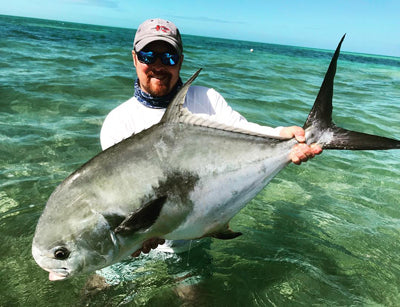
The last thing you want to deal with when fishing is the bright sun and the annoying glare bouncing off the water. Polarized sunglasses block the glare which helps your eyes from having to constantly squint. They also increase color contrasts which help with viewing the objects clearer and seeing details that might have been missed otherwise. One of the best things about using polarized lenses when fishing is the ability to see under the water’s surface because of the blocked glare and increased contrast.
To learn more about the science behind polarization, make sure you check out the article, "What are the benefits of polarized sunglasses?".
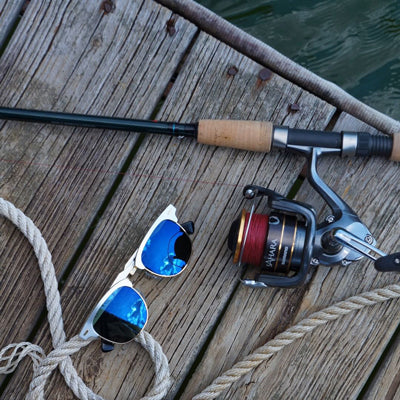
Whenever you are browsing for lenses it is vitally important to consider the environment you will be using them in. Deciding which tint and mirror color to buy can be overwhelming when starting out. As a generalization, dark grey lenses are great for offshore fishing because you want a darker coverage to block off the brightness of the sun. For inshore fishing, brown colored lenses are more appropriate because it helps with separation of color and brightens up the water to better see underneath it.
When you are fishing offshore, you are surrounded by deep water, which means the sun’s glare is at its peak. Because of this, you want to reach towards sunglasses that make things darker. For this situation, you would want a grey tinted. The Grey lens at Fuse is great for this. Another opinion is using a blue mirrored lens because it helps to reflect light coming from the water and sky which tone down the intensity and helps with overall visibility. However, mirrored lenses need special care because the salt water can negatively affect the metal mirror coating on the lenses. There is more information about this in the “Caring For Your Sunglasses” section.
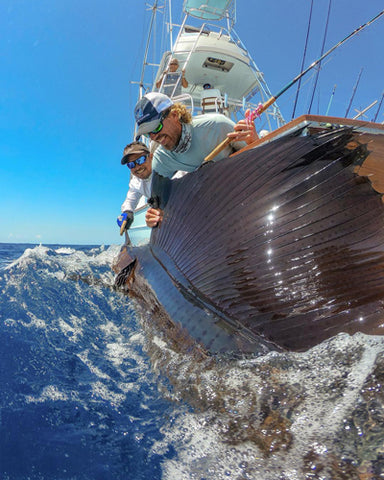
When you are inshore fishing, you want a lens that offers more color contrast instead of making things darker. That is because, unlike offshore fishing where you are surrounded by water, the glare during inshore fishing is not as intense. Seeing the fish is also more important in inshore fishing because the water is more shallow and fewer species of fish tend to live in those environments. Even though the brown will brighten up your view, it will still give you the same UV protection as a darker lens. To learn more about this make sure you check out the article on UV protection. Some of the brown based lenses we offer at Fuse are Bronze and Brown. The yellow-tinted polarized lenses also help with brightening things up. However, yellow lenses are more commonly used in low-light conditions.
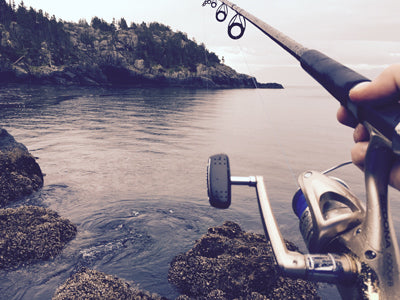
Lenses are available in countless numbers of lens tints and colors! Just Fuse Lenses has over 20 colors available.
The tints on sunglasses are not just there for the aesthetic. Different color tints serve different purposes. Colors can be enhanced, distorted or seem completely normal based on the tint. This is because the color of the tint affects how light is absorbed.
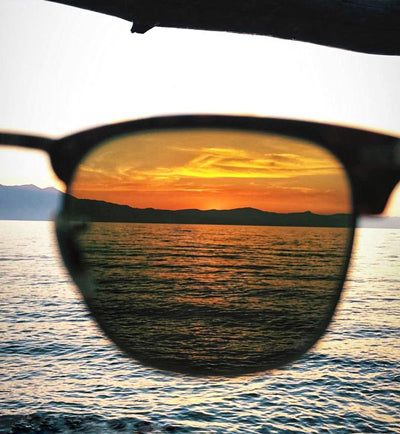
While tints absorb light and manipulate it in various ways, mirrored lenses can actually help reflect light back. Since the light is reflected and not absorbed, the sunglasses can make objects appear brighter instead of darker. The exception to this is if the mirrors on the lenses are thick, in that case, it will be darker. Chances are if your mirrored lens is more than one color, like the Nova lenses here at Fuse, then it is usually a thicker mirrored lens. The color of the mirror is actually not as important as the tint.
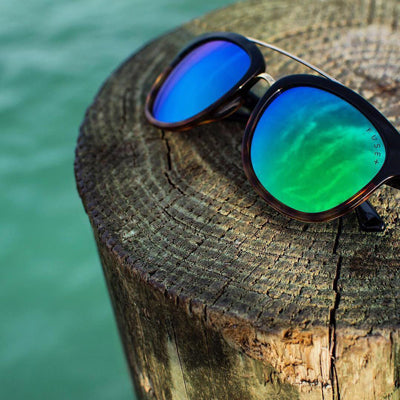
After doing the hard research on deciding what lenses to buy, the actual upkeeping of the lenses can often get neglected. Although you can always find your lens replacement here at Fuse, we want to provide you with the best service and keep your lenses in mint condition for as long as possible.
After a long day of wear, particles of dust or sand stick to the lenses. You want to blow any particles off the lenses as best as you can before attempting to wiper or clean your lenses. If the particles will not blow off or if you have salt on your lenses from a day filled with saltwater fishing, you want to run fresh water over the lenses to remove the particles of salt.
When handling sunglasses, smudges and fingerprint marks are bound to appear on the lenses. To get rid of these, you want to gently wash the lenses in mild soapy water or by using a lens cleaning spray. You want to avoid using anything that is alcohol based because it can start to affect the mirror coating on your lenses. You then want to dry the lenses with a clean microfiber bag, like the one included in every Fuse Lenses order, or use a soft cotton cloth.
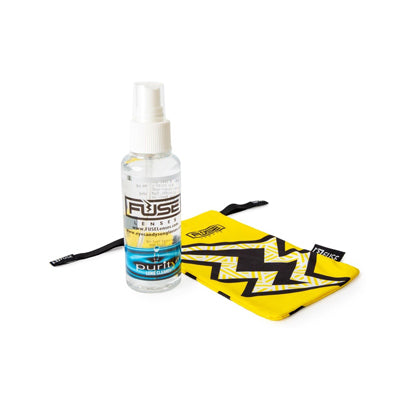
Salt is actually corrosive to the metal on your sunglasses and the metal finish on mirrored lenses. If the salt water is left to dry, it can actually cause scratches on your lenses.
The combination of moisture, oxygen, and salt, especially sodium chloride, is more damaging to metal than rust. This combination eats away at the metal which weakens it and causes it to fall apart. Salt water actually corrodes metal five times faster than fresh water does. Salty, humid air corrodes 10 times faster than air with a normal amount of humidity.
After a day on the water, be sure to rinse your lenses in fresh, clean water as soon as possible to ensure the longevity of your lenses.
Don't See Your Frames? Get Custom Lenses
You choose from over 20+ colors and tints. Our highest quality lenses come with polarization and anti-reflective coatings.
Go to lens colors
Log in to gain access to pre-order our best selling and fastest-going lenses.
Fuse +Plus lens purchases include a lifetime, 1 time replacement guarantee. It doesn’t matter if something happens today, tomorrow, or 10 years from now -- we’ve got your back.
All lens purchases include a lifetime, 1 time replacement warranty standard, no questions asked.
You can add an additional warranty replacement to your order for just $9.99. Adding this option gives you a total of TWO lens replacements over the lifetime of your lenses!
*Each extended warranty purchase applies to one set of lenses on your order. You can only purchase one extended warranty per pair of lenses. Not valid on prescription lens orders
Warranty redemptions may only be used for a lens of the same value and for the same frame as the original purchase. If your lenses become damaged at any time during the warranty time period, simply contact customer service from our Help Center to get a fresh set of lenses.
All lens purchases include a 60-day guarantee. Within 60 days after the date of delivery, you may exchange or return your item for a full refund. To be eligible for a return, your item must be unused, in the original packaging, and in the same condition that you received it.
Unfortunately, gift cards are ineligible for returns. Additionally, past 60 days we are unable to offer you a refund. To complete your return, we require proof of purchase..
We get a ton of packages, so please do not send your items back without first receiving a Return Merchandise Authorization (RMA) number. You will receive an RMA number once you have started a return or exchange. To start a return or exchange, contact us at from our Help Center.
